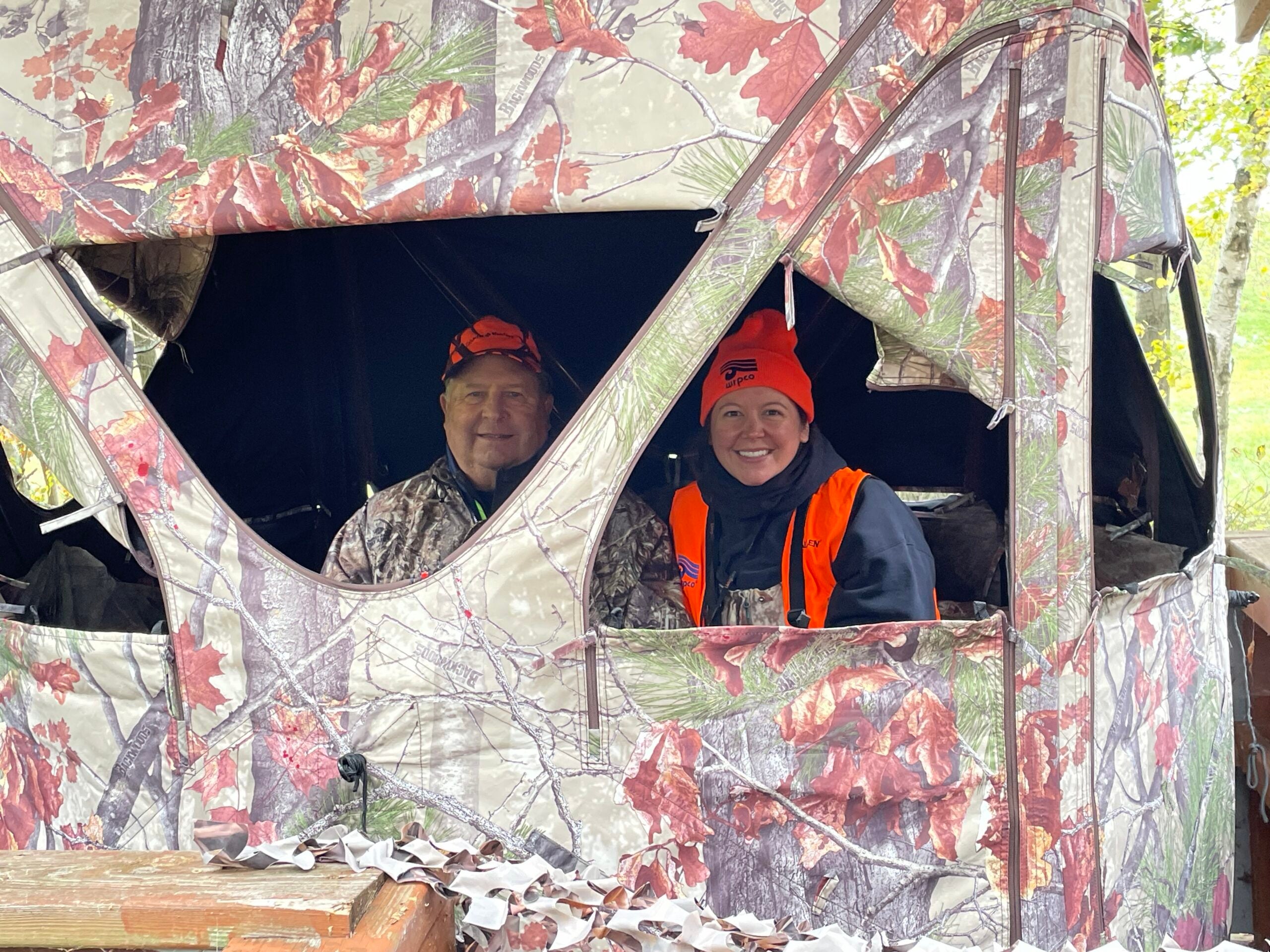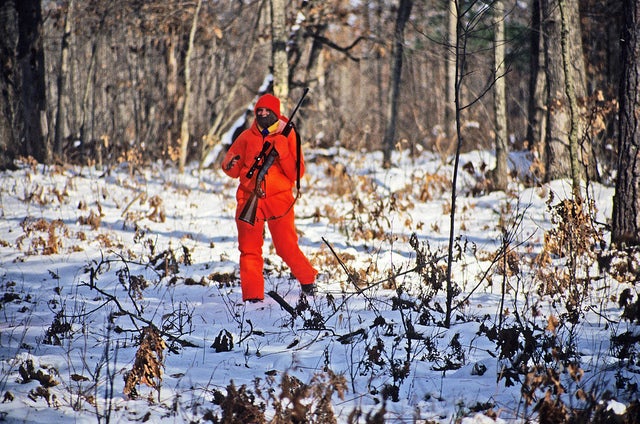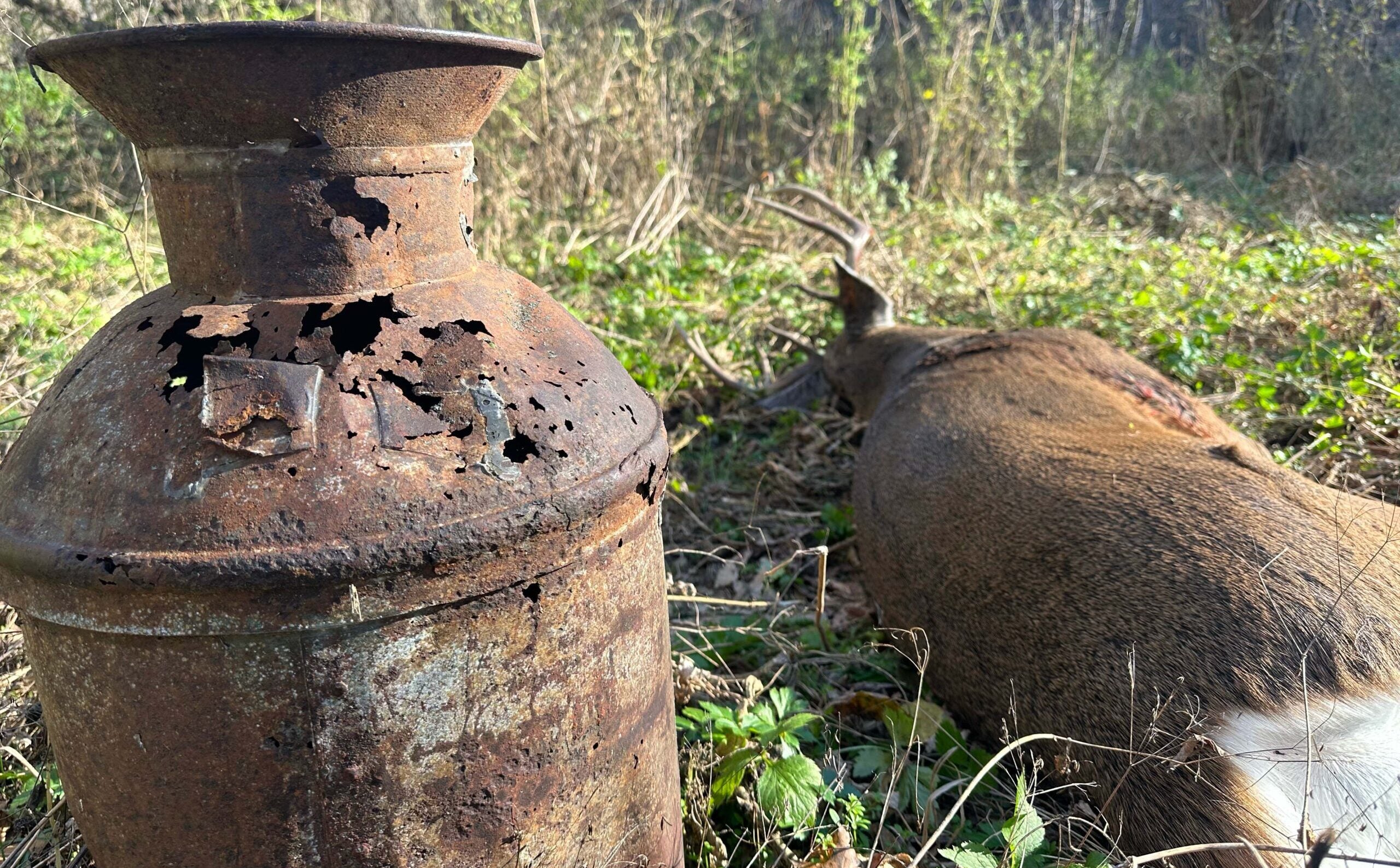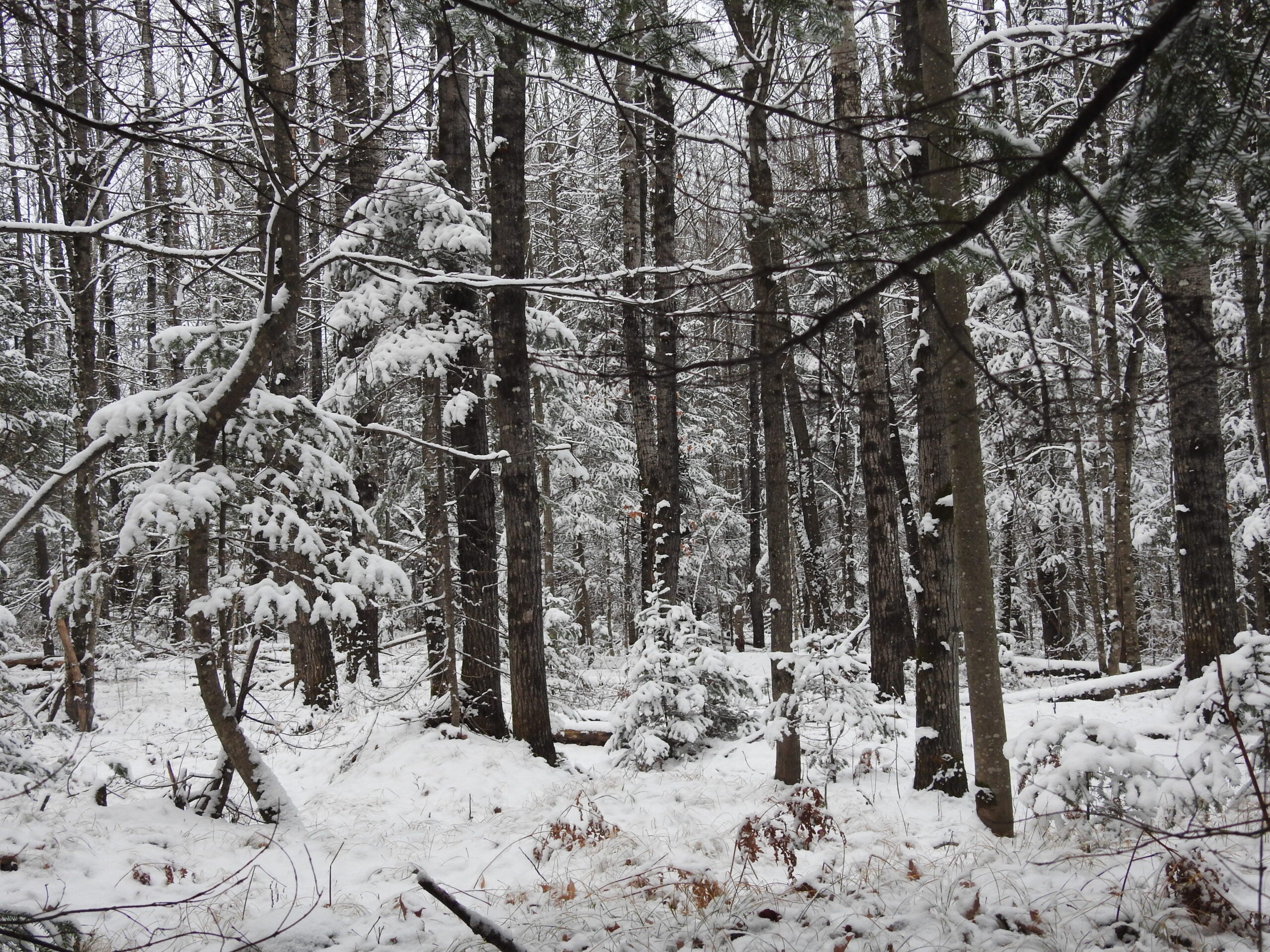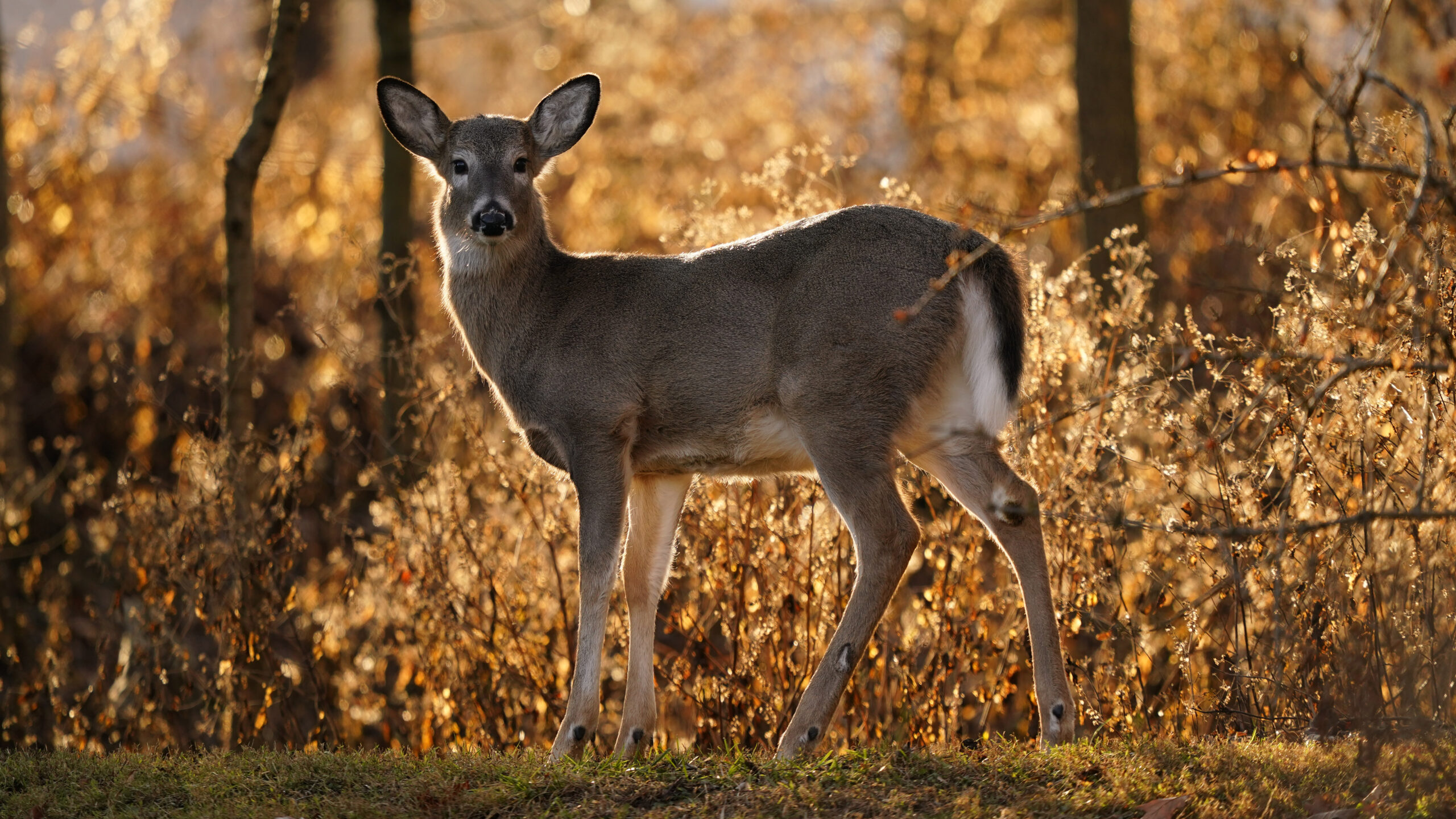John Martinson grew up in a family of hunters. He started when he was just 12 years old, hunting pheasants and deer in the woods on his family’s farm near Sun Prairie.
When a fall in 2002 caused Martinson to become paralyzed from the chest down, he was unsure if he would ever hunt again. But while he was in the hospital, a fellow hunter with a disability told him about a way to continue deer hunting each October.
With the help of Rock Creek Disabled Outdoors, Martinson got back out into the woods and harvested a deer the year after his injury.
News with a little more humanity
WPR’s “Wisconsin Today” newsletter keeps you connected to the state you love without feeling overwhelmed. No paywall. No agenda. No corporate filter.
“I didn’t know how to go about getting back into hunting, which I loved as a kid,” Martinson told WPR’s “Wisconsin Today.” “I’m very fortunate that somebody was there to help me get back out there.”
Wisconsin’s Department of Natural Resources and local groups like Rock Creek Disabled Outdoors work in tandem to provide opportunities for hunters with disabilities. Since 1992, the DNR has facilitated the Wisconsin Deer Hunt For Hunters With Disabilities. This year, the nine-day season ran from Oct. 5 to Oct. 13 — more than a month before the regular gun deer hunting season.
“With it being earlier in the season, it’s a bit warmer and more accessible for a lot more hunters,” said DNR Assistant Deer and Elk Specialist Brooke VanHandel.
The DNR also allows hunters to use adaptations while hunting, depending on the nature of their disability. For example, those with mobility problems may shoot from a stationary vehicle. Those with vision impairments may use laser sights. Hunters with upper extremity impairments may use adaptive equipment to help them handle and shoot a firearm.
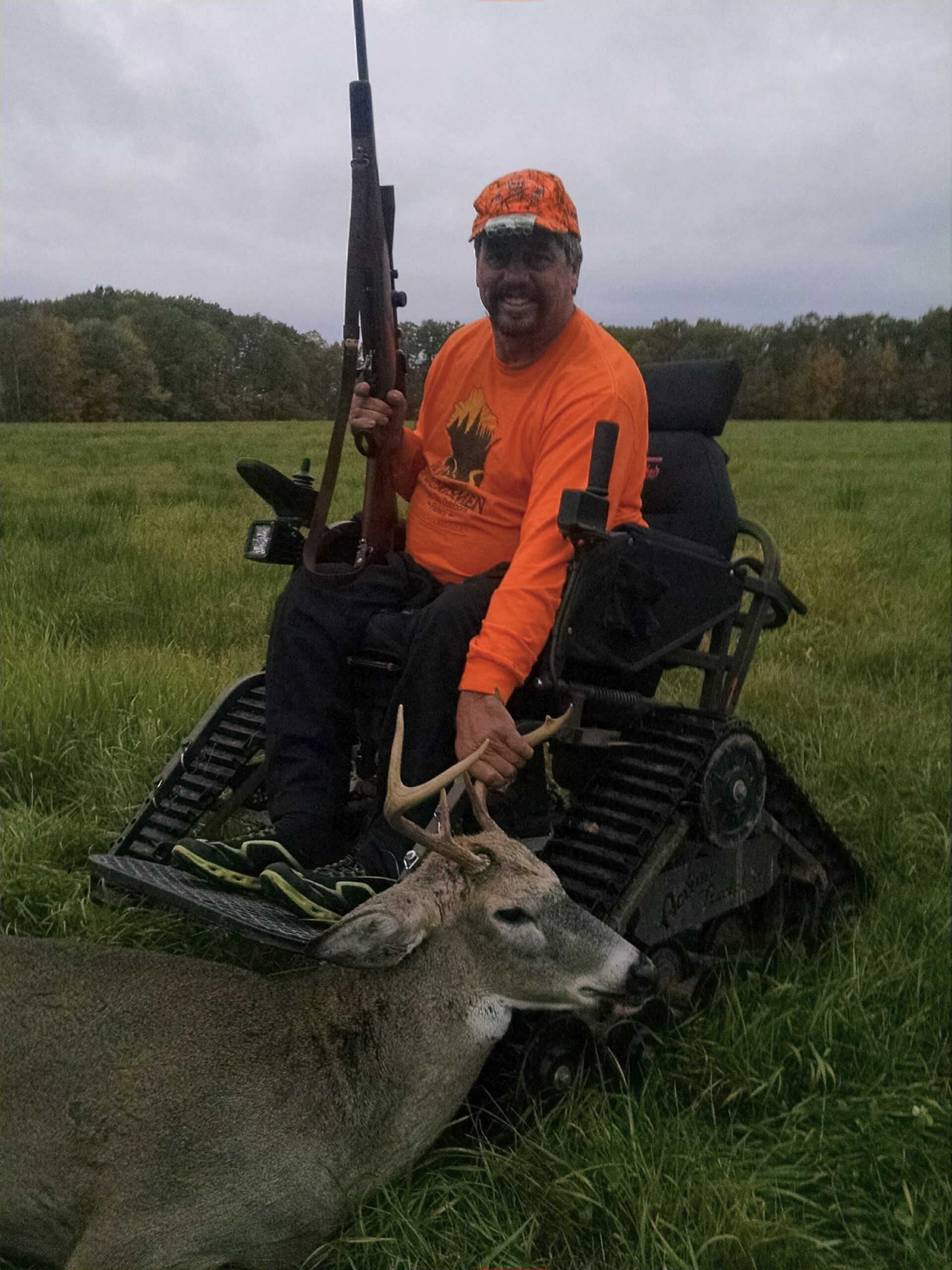
Volunteers, sponsors who offer their land make the hunt happen
The hunt is made possible by sponsors — landowners who allow participants to hunt on their land for free during the season.
This year, 443 hunters signed up to hunt on more than 70,000 acres of sponsored land, VanHandel said.
Those hunters can participate with the help of partner organizations, which provide the hunters with adaptive equipment and volunteers to help facilitate their hunt.
Volunteers survey the land for accessible hunting spots, set up blinds, help get participants out to their location and assist with retrieving and dressing any game they get.
Keith Pamperin is an avid hunter, even after a motor scooter accident in college that caused permanent injury to his legs. He said he has yet to miss a hunt going back to 1971.
“I got hooked really bad my first hunt. The first time I ever went deer hunting, I ended up getting an eight-point buck,” Pamperin said. “From that point on, I was convinced I was going to go hunting forevermore.”
He appreciates the volunteers who help him continue with his hobby.
“We have to give credit to the able-bodied volunteers that really put these things together,” Pamperin said. “It’s a lot of work, and we’re very honored to have the able-bodied helpers.”
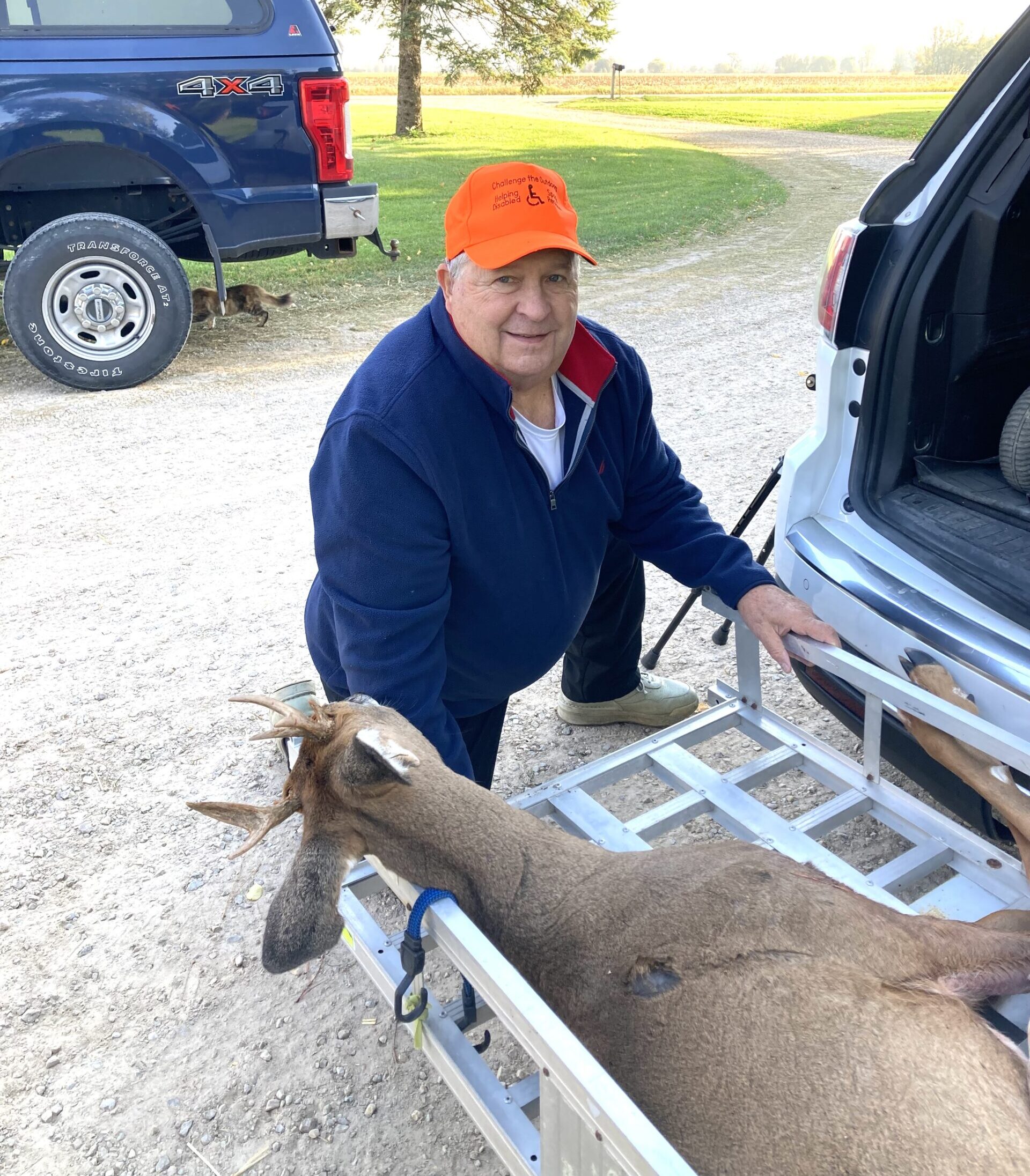
Many of the volunteers without a disability are hunters themselves — another reason why having a separate October season is beneficial.
Both Martinson and Pamperin are involved in partner organizations: Martinson is vice chairman of Adapted Sportsmen and Pamperin is on the board of directors at Challenge the Outdoors. They also serve on the Wisconsin DNR’s Disability Advisory Council.
“For me, and I know for a lot of other people … it’s the opportunity to be out with nature and see things that you don’t see every day unless you get outdoors,” Pamperin said. “It really refreshes the soul. It reduces anxiety and depression. It gives you a sense of belonging to nature.”
Proposed change could expand opportunities for hunters with disabilities
While the number of hunters in Wisconsin continues to decline, VanHandel said the DNR has not seen such decreases in the Wisconsin Deer Hunt for Hunters with Disabilities.
“It’s been holding pretty steady from year to year,” VanHandel said. “As hunters continue to age out, we might see a decline in that. But hopefully we can continue spreading and promoting this program.”
The DNR’s Deer Advisory Committee proposed a change that could help boost program participation by allowing individuals with disabilities to hunt on more properties.
Currently, hunters may only participate on land that is registered with the DNR months in advance, and the property must meet certain acreage and capacity requirements. That means some hunters with disabilities can’t hunt on their own land.
The change would allow hunters with disability permits to hunt deer anywhere in the state alongside the two-day youth deer hunt.
“It wouldn’t be the full nine days that we would be expanding, but we’re hoping for a partial expansion so that it offers hunters access statewide, instead of just through the sponsored properties,” VanHandel said.
Any proposed change would eventually need to be approved by the state Natural Resources Board and could go into effect as soon as the 2025 season.
Wisconsin Public Radio, © Copyright 2025, Board of Regents of the University of Wisconsin System and Wisconsin Educational Communications Board.

